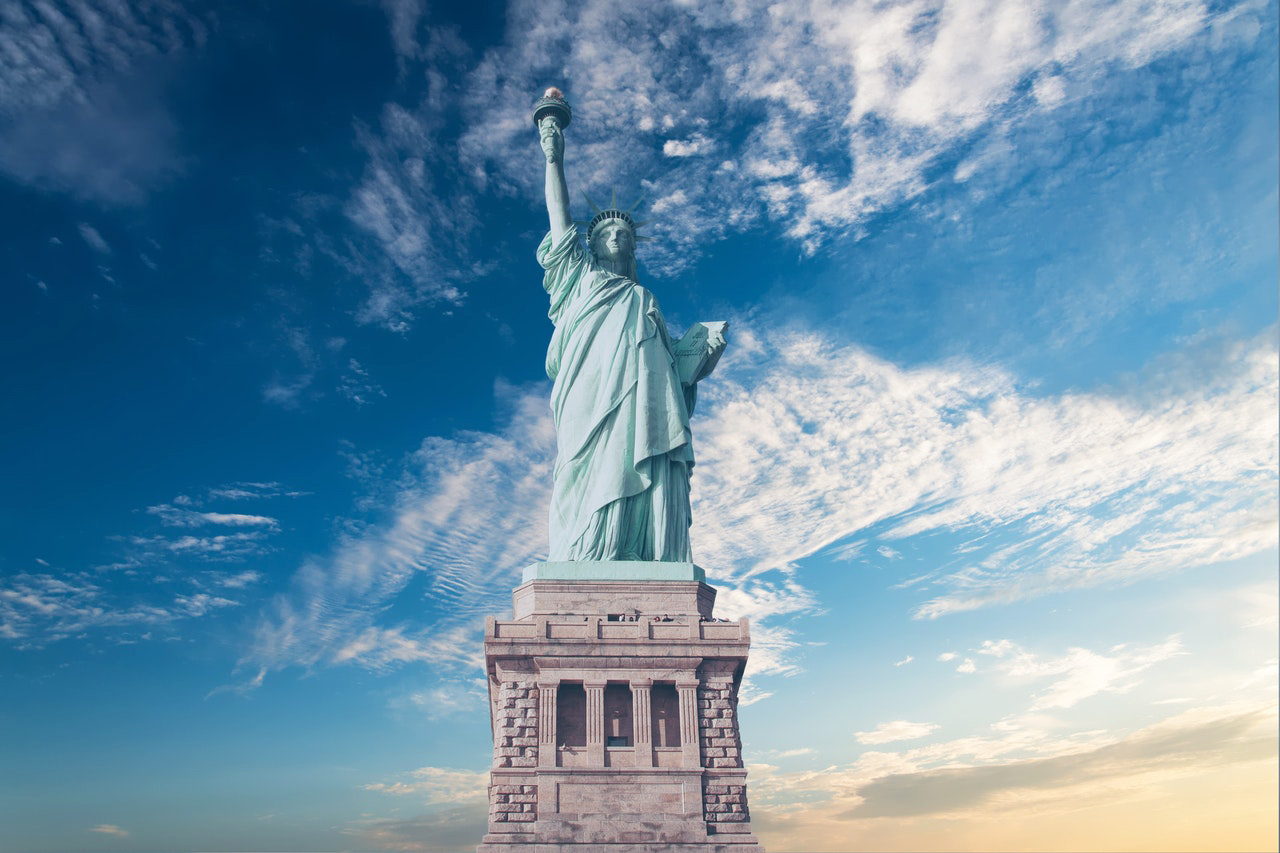

Eleven poems by the Jamaican poet, as part of the World Poetry/Prose Portfolio, curated by Sudeep Sen
American Welcome
I’ll never forget the first time
when as a recent arrival to America,
I’d been offered a fellowship for a month-long
residency in Seaside, Florida, where no two
houses on the same street are allowed
to have the same picket fence, and eager
to escape the white noise of the Lyceum,
modelled after Jefferson’s academic village,
where I had been dubbed, “the equal opportunity
candidate,” I wandered outside the gates
on my morning jog — as if I was still
that privileged schoolboy, who could go
anywhere he wanted — when a pickup
truck with six or so rednecks, swilling beer
in the flat bed — they might as well have been
on horseback and wearing white robes —
whizzed by me while I was tying my shoe
laces and screamed, “Niggerrrrrrrrrrr.”
I looked behind me to find the target
of their anger, for Garvey had taught me
long ago never to answer to that name,
and then, jumped out of the way
before a bottle exploded near my feet,
and continued my journey toward
the outskirts of the town, but now always
looking over my shoulder, always
running, always out of breath.
Philosophy 101
I’d avoided the class until my senior year in college
when my advisor warned me that I wouldn’t graduate
until I took a course on western philosophy,
in which, as I feared, instead of reading the discussions
between Camus, the pied noir writer who argued
for the State’s use of force, and Sartre, who enlisted
Fanon to untangle Hegel’s Master-Slave dialectic,
we read Kant’s theses about the nature of evil and good.
Two weeks later, my suspicions about the course
were confirmed when the TA, fresh out of graduate
school, decided to assign a thought experiment.
It was a simple exercise in which we’d follow,
without relying on emotions — for they always led
to invalid conclusions — the logic of our premises
with pure objectivity, “Suppose you had to choose
between saving an irreplaceable painting, let’s say
a Rembrandt — who bathes his subjects in light
while pushing darkness to the edge of the frame —
or the life of an old woman, who'd lived long enough
to see her grandchildren, so she didn’t have much to look
forward to. What would be your choice? The paper’s due
next week.” Trudging back to my dorm, I doubted
if it would have been so simple if his grandmother
had been forced into the bowels of the Zong —
or later on another continent, had been herded
into showers in Buchenwald, where scholars,
who’d studied Nietzsche’s books that escaped
the pyres in Berlin, found haven in the officer’s
quarters while ash from the chimneys
clouded the windows of their favourite theatres.
I would’ve dropped the course, but the deadline
had already passed, so I plopped on my bed
and studied the ceiling tiles when D., my roommate,
now sprouting dreadlocks saw me scratching my head,
“What are you struggling with?” he asked. I showed
him the assignment and he said. “These guys don’t get it.
Rastafari knows everything begins with ‘I am; therefore,
I wonder.’ Don’t follow dem fuckry, me bredrin,
not one raas.” So I took a gamble and skipped
writing the paper. No wonder I failed that class.
A Roadmap to Genocide
for Gregory H. Stanton
First, you need a leader who carries a burden
from birth or by accident, from which he can find
no relief with the lies he invents, or those his lovers
whisper when they leave in the early mornings,
so he has to search for someone, anyone
to blame for his misery, the torments of his warriors,
who aren’t afraid to smash the skulls of niggers,
kikes, gypsies — you name them. Don’t worry.
They really aren’t human. They’re more like cockroaches,
rats, parasites that leech the blood of your children,
vermin that transmit diseases like AIDS, Ebola,
typhus, and others, which your scientists haven’t yet
identified, but for which the treatment is always
quarantine in camps as far away as Krome from Miami.
But be careful. As with any plan of this scale,
be prepared to improvise. Fill in the gaps
with your own ideas. Begin by organizing the police,
army, militia — what have you — and if you’re lucky,
you may even recruit some half-breeds or traitors
who are willing to fatten themselves by enforcing
laws that keep them weak, statutes you’ve devised
to keep your property and your women — isn’t it always
your women? — whom you’ve convinced with stories
on the radio, television, and Twitter that caravans
of criminals have crossed the border with one intent:
to finger their hair, grope their thighs with hands
stained by grease and germs under their fingernails.
The rest of the journey is easy — whether you want slaves,
or to plunder the wealth you claim they have stolen.
The choice is yours: lock them in cages or kill them
slowly by poisoning the water. Use your discretion.
No one will notice a murder here or there until trials
are underway, which if you’ve done the groundwork,
only a few protesters will remain because you’ve already
silenced the cries of those who’d have stood up for sufferers,
those whom you’ve murdered with ropes, knives, guns,
and in gas chambers. Choose your method of execution
judiciously. I’d recommend ways that aren’t too messy.
You don’t want to leave any evidence lying around,
so that when you reach your final destination — you’ll know
by signs like, “Arbeit macht frei” — and if you’re caught
fleeing across borders, you’ve monitored for decades,
you can always rely on legally prepared pardons to deny
that you knew anything about the killing fields
or you can swear that nothing like that ever happened
on your watch. Either way, it’s going to be a blast!
The Israelites
for Desmond Dekker
Desmond, who would’ve thought fifty-one years
later after you’d cut “The Israelites,” that it would end
up on The Watchmen, a series that begins with the destruction
of Black Wall Street by white supremacists, and in the third
episode, “She was Killed by Space Junk,” where Adrian
Veidt is held captive by the Game Warden? I mean,
I could understand a number one hit in England
forty years ago when the children of the Windrush
generation — who’ve been betrayed by the British
government — blasted their music so loud from sound
systems in Birmingham and Brixton that your song
became part of the soundtrack for the punks.
Or that it climbed the charts to the number nine
spot in the US, where they couldn’t grasp the meaning
of the lyrics, but were beguiled by the bouncy tune
that belied themes of poverty, crime, abandonment,
and hunger — the same way the island seduces tourists
into thinking Jamaica is a paradise and they wind
up dead in the mangroves, a feast for John Crows
and hermit crabs. But a number one hit in Israel?
They must’ve thought the song was about them.
You had a different tribe on your mind, Rastafari,
or “The Lost Tribe of Israel,” who roamed the streets
of Trench Town. For who could blame the brethren,
who escaped extermination at Pinnacle and Coral
Gardens when the Prime Minister of Jamaica in 1963,
Alexander Bustamante, ordered Babylon
to “Bring in all Rastas, dead or alive!”
because they identified with the story of a people,
who survived exile, captivity, genocide,
and turned their tribulations into psalms of hope.
Bad Friday
for Deborah A. Thomas and John L. Jackson
Years after the beasts of Babylon swooped
down on Pinnacle and scattered Rastafari,
whose wisdom became flesh for I to unlearn
the folly of the massas of Rose Hall,
who grabbed me by my dreadlocks, and screamed,
“Rasta bwai, you a go dead today.” Did it matter
that I came from a good family or that my mother
taught me good manners, “Howdy and tenky
brukno square”? They only needed my beard
as evidence that I was a criminal and beat
me bloody until I was as naked as Christ
under the whip of Roman soldiers.
And all I could hear was the whoosh
of the batons raining on my head
until I was blind in my left eye, but I
could still see His Majesty and remained
as still as a spider at the center of a web
awaiting my deliverance. For in the hour
of my tribulation, when it felt as if the Father
had turned his back, like the moment before
an earthquake begins, I knew that if I had fallen
to the lowest depths, I would also rise again,
on the wings of mourning doves over Mount Salem.
How to Spot a Survivor
You don’t know what you did, but whatever
you did, it was wrong. So wrong that the soldiers
or anyone carrying a knife, gun, machete, or lacking
a weapon, improvised with their hands
and murdered your family on a day so beautiful,
the chamber of commerce could’ve used a photo
to entice tourists to visit your country
before the state department’s travel ban inched
across the television — your only companion
that silences the voices that keep returning,
despite the drugs you use to forget, Did I do too
much or too little? Drugs you use to get sleep,
which you dread, for when you dream,
hands drag you back under the earth,
and you keep hoping it’s all an elaborate
prank and that on your birthday next year
or the next or the one after that when you open
the door of your too small apartment —
which could’ve never held gatherings
for your rambunctious family —
they’ll pop up from behind the sofa
and yell, "Surprise!” Your mother, whom your aunt
says you resemble, but you can’t see the similarity
even after you’ve studied her photographs
from every possible angle, but pray one day
when you’re staring into the mirror, she’ll appear
behind you and nod approvingly at the reflection;
your father, whom you hated for the beatings —
you would now gladly endure — when he came home
drunk and grabbed anything he could find, a shoe,
an extension cord, as if it had been placed in his way
by an avenging angel to beat the feistiness out of you;
your brother, who was always broke, but you wish
he was beside you and still broke, but not dead. And how
could he be dead when he was the only one who could
explain why you feel as if you’re in a deleted chapter
of Left Behind because you and the murderers are still alive?
The Archangel’s Trumpet
If you followed the frescoes on the ceiling
of the Sistine Chapel, you’d believe
that there are no black angels in heaven.
And, maybe, they are right. Our seraphs
and cherubs, would rather help Yemaya
to protect her children from the wolves
in this world than to spend eternity pondering
the mysteries of the Madonna’s Assumption.
And although being in the form of God,
who weeps for the blood shed on our sidewalks
and bedrooms, they emptied themselves
when they took the likeness of men, women,
X, in the land of Dis: dishonour, disrespect,
disregard, desgraciada — where black skin
is despised like an incurable disease: the darker
the hue, the greater the sin, and the only cure
is a bullet or a noose. But in those moments
when they put down their mortal concerns:
paying doctors’ bills or worrying if their spouses
and children will make it home for dinner;
when they have grown tired of hiding
grimaces behind selfies and mug shots,
they unfurl wings that cover their backs,
scarred by the spite of downpressers,
wounds from those whom we love so dearly,
and re-join the hymns that we knew before
our feet landed on the sand, on the auction block —
before we had forgotten how to fly
and lifted our voices to a sky that greeted
the chorus, the way flame-hearts signal the start
of summer with crimson petals, or the harmony
that bees on a pollen path recognize in the opening bars:
“O, blow your trumpet, Gabriel, Blow your trumpet louder,
I want dat trumpet to blow me home to my new Jerusalem.”
America 2020
America, you’ve lost your way.
You’ve believed in your innocence
for so long, you’ve betrayed your promises
on parchment, trapped children in cages,
robbed fatherless children and widows
of their birthright, and while the oceans
churn towards a slow boil, and a virus holds
us hostage in our homes, you’ve allowed gangsters
to prey on families seeking asylum from thugs
in Honduras, El Salvador, and Guatemala.
And you’d rather die than give up your privilege
to hunt black men you think have become too uppity.
Yet, despite the millions lost in the Maafa,
massacres in East St. Louis, Tulsa, Rosewood,
the destruction of Overtown, and poisoning of Flint,
we are marking stones where our martyrs
have fallen, taking note of your crimes that fester
like scraps of chicken and lamb — desperate offerings
to the saints for justice — littering the steps
of the courthouse in Miami, where a wake
of turkey buzzards returns to their roosts atop
skyscrapers every winter, their wings darkening the skies.
History Lesson
Inside my father’s darkened study,
lined with thumb-worn history books,
portraits of his heroes, warrior saints,
like Ignatius Loyola, whom he adored
from when he was about the same age
as my son, to whom he hands a globe —
to my son’s innocent delight — to show
him the old borders before the world
went to hell. My father’s index finger
traces along the meridians with the ease
that another of his heroes, Pope Julius,
made a line that ran through the Cape
Verde Islands to the Nuremberg Laws
that separated the damned from the saved
And despite my unease with this lesson —
quieted by his glance that paralyzes
my hands — I cannot tear my son away
from his arms, for he is my father,
and I am a good son, who must obey.
The Reckoning
It could have been on a day like this
when Pero Jones, an enslaved African,
who had worked well for Edward Pinney's
family until he visited the plantation in Nevis
where he had been bought, drowned his grief
in rum that his brothers and sisters distilled
from their sweat, and died in his master’s
house in Bristol. And for over a hundred years,
the descendants of Pero Jones, who grew tired
of the pain — like the kind George Floyd’s
brother confessed in his testimony before Congress —
the daily insult when they faced Edward Colston’s
statue, “Erected by the citizens of Bristol
as a memorial to one of the most virtuous and wise
sons of the city,” that sneered when they crossed
the footbridge Bristolians eventually named
after their ancestor, so they grabbed their hammers,
enough rope to support the weight of a man,
tore down the statue, and dumped it in Bristol Harbor
where centuries ago Colston’s ships after selling
their payload of sugar — served in the finest teahouses
in the Empire — returned to Elmina Castle
to retrieve his property, branded with the seal
of the Royal African Company on their chests,
and then, slipped past sharks following slavers
that dumped cargo unfit for sale into the ocean,
their sails billowed by winds, which later
would become hurricanes that now threaten
windmills, Great Houses, statues of conquistadors
and criminals in the archipelago of the dispossessed.
Suburban Kenosis
These days, I haven’t seen the schizophrenic
girl, who used to scavenge for cigarette butts
near the fountain abandoned by homeless men
like Kenny, master mechanic and family man,
who, after his accident and doctors introduced
him to Oxy, has moved his cart behind the bus stop.
Sometimes he’ll hum a tune I barely recognize,
and some days he will lie in the grass until crows
descend on flames of flamboyants. Yet Kenny
never flinches, despite their taunts, and I wonder
what he might have done, for it must’ve been
something spiteful — crows never forget.
“Self-aware, able to ponder the contents
of their own minds,” the crows interrogate
him about his sins in this life or the last,
and when a bus arrives, ending the torment
of their questions, they adjourn for another day.
Piling his bags on the steps, he heads to the Beach
to sleep beside blanket flowers until the sun stumbles
over the dunes. And then, like a widower, whose hands
tremble when he rummages through his cabinet
for medications to ease his pressure, lower his sugar —
complications his body registers as a sluggishness
of his blood, a stabbing pain in his ankles — he will snap
a rubber band on his wrist to remind himself to throw away
chocolates he’d bought yesterday, to give up everything
he’d ever loved, as if he hadn’t been doing that all his life?
(These poems were part of May 2021 issue, which was delayed due to the pandemic and released on August 3)
More from The Byword
Comments
*Comments will be moderated
Outstanding poems; heartfelt! Geoffrey's poetry has a way of sneaking inside you to unravel your composure and lay bare your heart. This is one those times.
Marva McClean
Aug 4, 2021 at 14:48




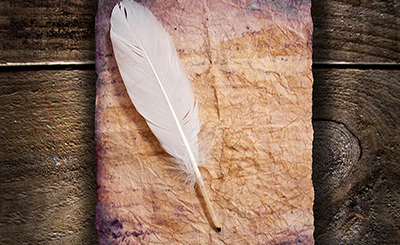

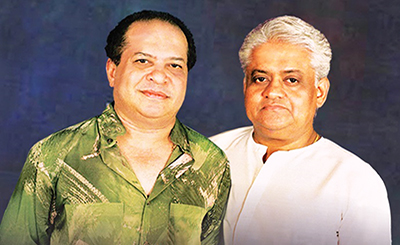
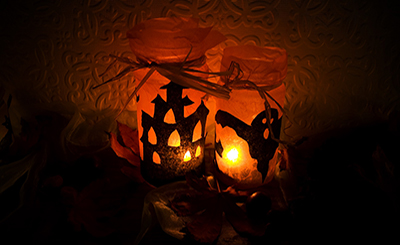
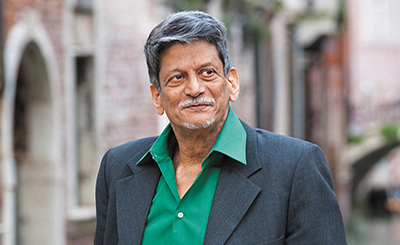
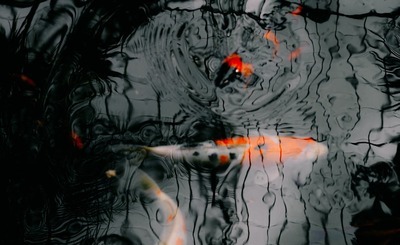
.jpg)
